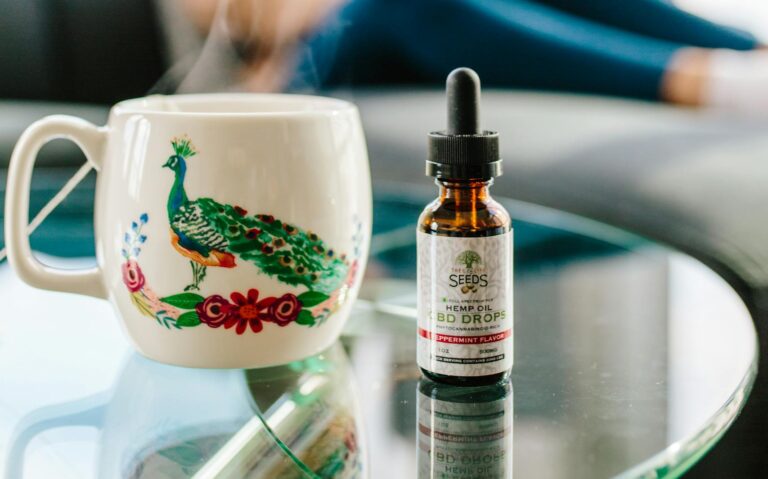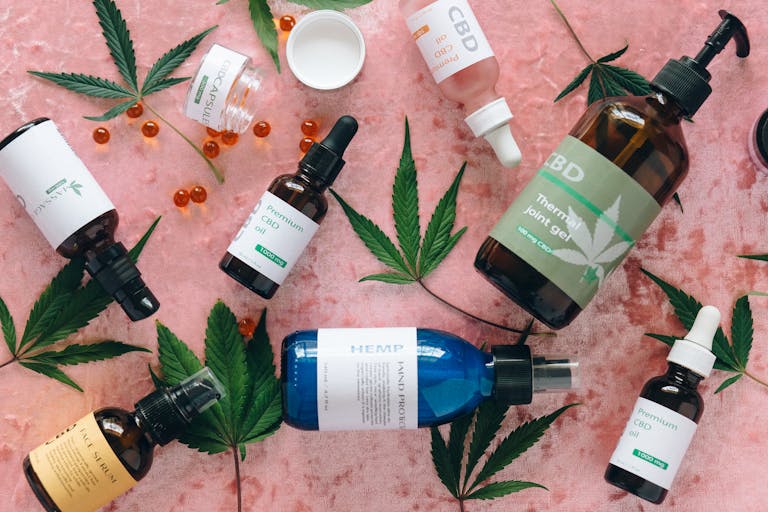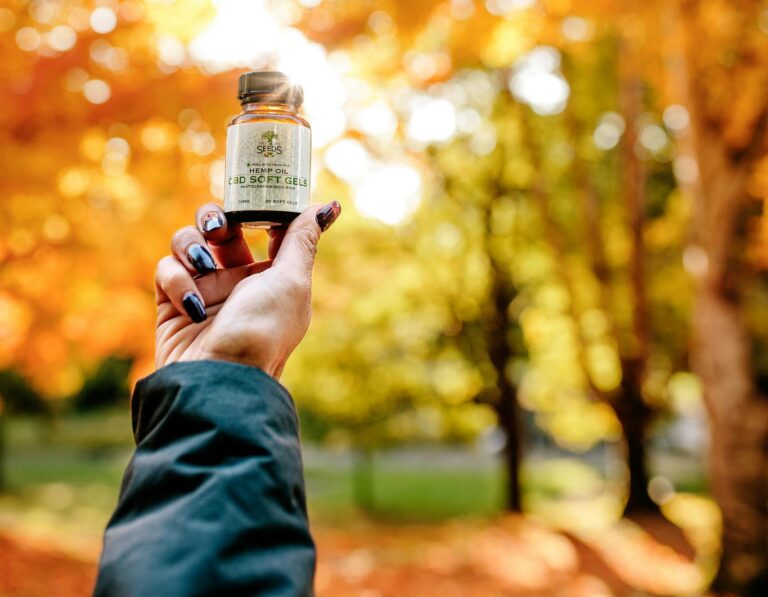Can You Get Addicted to CBD?

The question that’s on many minds today is, Can You Get Addicted to CBD? As cannabidiol (CBD) gains prominence in wellness circles, it’s crucial to explore this topic thoroughly. With its rise in popularity, there are mixed opinions circulating about whether CBD can lead to addiction or dependency.
The Basics of CBD: What You Need to Know
Before diving into the complexities of CBD and addiction, it’s essential to understand what CBD is. This section will cover what CBD is, how it works within the body, and its potential benefits.
What is CBD?
CBD, short for cannabidiol, is a chemical compound derived from the Cannabis sativa plant. Unlike its more famous counterpart THC (tetrahydrocannabinol), CBD does not produce psychoactive effects. This makes it appealing to people seeking relief from various ailments without the high associated with marijuana.
CBD interacts with the endocannabinoid system (ECS), which plays a crucial role in regulating functions such as mood, sleep, appetite, and immune response. By influencing this system, CBD may offer therapeutic benefits that range from alleviating anxiety to managing chronic pain.
How Does CBD Work?
To grasp the potential for addiction, it’s vital to understand how CBD operates within the body.
CBD primarily exerts its effects through cannabinoid receptors in the brain and other parts of the body. While THC binds directly to CB1 receptors, CBD’s interaction is much more complex. It appears to enhance the body’s natural supply of endocannabinoids rather than mimicking them.
This mechanism reduces the likelihood of developing a dependence or addiction since it doesn’t activate the reward centers of the brain in the same way that addictive substances do.
Potential Benefits of CBD
Many people are drawn to CBD for its purported health benefits, which include:
- Anxiety Relief: Numerous studies suggest that CBD can help reduce anxiety and improve overall mood.
- Pain Management: CBD has been researched for its efficacy in managing chronic pain conditions, including arthritis and multiple sclerosis.
- Anti-inflammatory Properties: Many users report reduced inflammation and swelling when using CBD products.
Despite these potential benefits, it’s critical to consider whether they could lead to dependencies or withdrawal symptoms.
Is CBD Addictive? Exploring the Evidence
Now that we have a foundational understanding of CBD, we can delve into the core of the matter—is CBD really addictive? This section will analyze research findings and expert opinions regarding CBD’s dependency potential.
Scientific Research on CBD Addiction
In recent years, several studies have examined CBD’s addictive properties. Notably, a review published in Current Psychiatry Reports concluded that “CBD does not appear to cause intoxication or dependence,” a statement that is backed by various clinical trials.
Researchers have also explored CBD’s impact on addiction to other substances. Some findings suggest that CBD may even reduce cravings and withdrawal symptoms related to opioid addiction. However, further long-term studies are necessary to determine its efficacy and safety over time.
Expert Opinions on Dependency
Experts in the field of addiction medicine largely agree that CBD is not addictive. Dr. Nora Volkow, director of the National Institute on Drug Abuse (NIDA), has stated that CBD does not produce the same euphoric effects as THC, making it less likely to be misused.
However, there exists a philosophical debate among professionals regarding any substance that alters physiological states. Is it possible to develop a psychological dependence on CBD? While most studies indicate low risk, anecdotal evidence suggests some individuals may feel reliant on it for everyday functioning.
User Experiences and Anecdotes
User testimonies about CBD can be varied and enlightening. Many individuals who use CBD for therapeutic reasons report feeling an overwhelming sense of calm and well-being. Yet, some also express concerns about feeling dependent on it for managing stress or anxiety.
These experiences raise questions about mental versus physical dependency. Can relying on CBD for emotional stability indicate a psychological dependence? It’s essential to differentiate between using CBD responsibly and becoming overly reliant on it.
What Are the Risks Associated with CBD Use?
While CBD may not be addictive, like any supplement or medication, it comes with potential risks and side effects. Understanding these is critical for anyone contemplating its use.
Common Side Effects of CBD
Though generally considered safe, some users may experience side effects when consuming CBD. These side effects can include:
- Fatigue: Some users report excessive drowsiness, particularly at higher doses.
- Changes in Appetite: CBD may alter hunger levels, leading to weight changes.
- Diarrhea: Some individuals may experience digestive issues.
It’s crucial to consult with a healthcare professional before integrating CBD into your routine, especially if you’re taking other medications.
Long-Term Effects and Unknowns
Given that CBD is relatively new on the wellness scene, long-term effects are still unclear. While preliminary studies indicate safety, ongoing research seeks to assess prolonged use’s impact comprehensively.
Furthermore, the lack of regulation in CBD products means that quality can vary significantly between brands. Some products may contain harmful additives or trace amounts of THC, which could potentially complicate the user experience.
Interactions with Other Substances
CBD can interact with various medications, particularly those metabolized by the liver. Caution is advised when combining CBD with drugs that affect blood pressure, anticoagulants, or antidepressants. Always prioritize open dialogue with your healthcare provider to ensure safe usage.
Navigating the Grey Areas: Psychological Dependence vs. Addiction
Understanding the nuances between psychological dependence and addiction is essential for those considering CBD as a treatment option. This section will clarify these terms and how they relate to CBD consumption.
Defining Psychological Dependence
Psychological dependence refers to the emotional or mental need for a substance to function normally. This differs from addiction, where there are clear physical withdrawal symptoms when the substance is removed.
With CBD, individuals might rely on it for emotional support or lifestyle enhancement. However, this reliance does not necessarily equate to addiction.
Signs of Psychological Dependence
Some indicators of psychological dependence on CBD may include:
- Using CBD primarily to cope with stressful situations instead of addressing underlying issues.
- Feeling anxious or unsettled when unable to access CBD.
- Prioritizing CBD use over other healthy coping mechanisms.
Recognizing these signs allows individuals to maintain a balanced approach to their wellness strategies.
Finding Balance in CBD Use
Like any wellness tool, moderation and self-awareness are crucial when utilizing CBD. Individuals should self-reflect regularly, ensuring that they’re using CBD responsibly and mindfully rather than out of habit or compulsion.
Additionally, consider integrating other holistic practices, such as exercise, mindfulness, or therapy, into your wellness routine. This balance can help mitigate psychological dependence while maximizing the benefits of CBD.
FAQs About CBD and Its Potential for Addiction
Here are five frequently asked questions related to CBD, addiction, and overall usage.
What is the difference between CBD and THC?
CBD (cannabidiol) is non-psychoactive and does not produce a “high,” while THC (tetrahydrocannabinol) is the psychoactive compound in cannabis responsible for the intoxicating effects.
Can you overdose on CBD?
While CBD is generally considered safe, excessive consumption can lead to undesirable side effects such as fatigue or nausea. Consult a healthcare provider for dosage recommendations.
Is CBD legal everywhere?
The legality of CBD varies by location. In the U.S., hemp-derived CBD is federally legal, but state laws may differ. Always check local regulations before purchasing.
Can CBD help with anxiety or depression?
Many users report positive effects on anxiety and mood with CBD. However, individual responses can vary, and it’s best to consult with a healthcare professional.
Will CBD show up on a drug test?
Most standard drug tests do not screen for CBD specifically. However, some products may contain trace amounts of THC, which could result in a positive test. Always read labels carefully.
Conclusion
In summary, the question of Can You Get Addicted to CBD? reveals a complex landscape of research, anecdotal evidence, and personal experiences. While the prevailing scientific consensus indicates that CBD does not lead to addiction, the potential for psychological reliance exists. Users must remain vigilant and practice moderation as they explore CBD’s therapeutic benefits. Seeking guidance from healthcare professionals can also provide personalized insight and ensure that CBD is used safely and effectively in one’s wellness journey.






